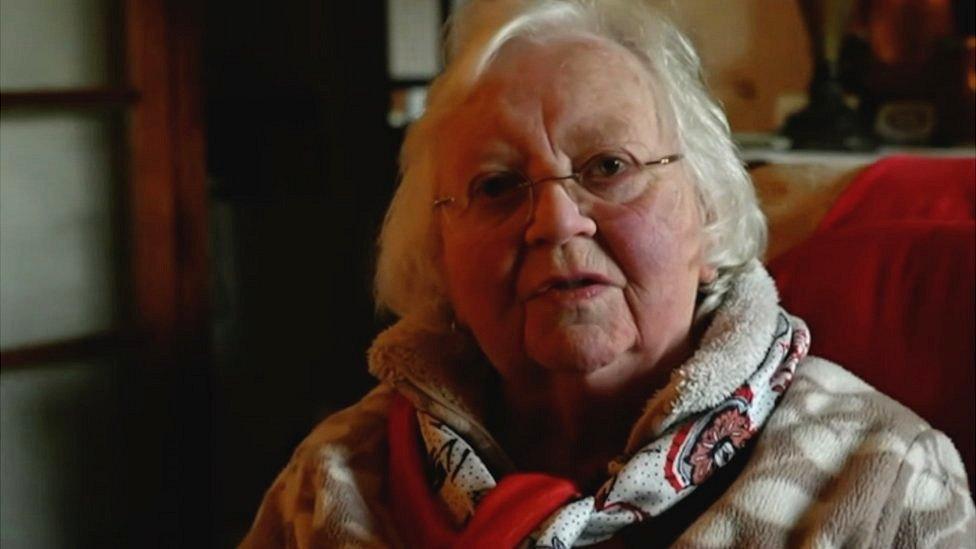Northumberland charity calls for heating payment help
- Published
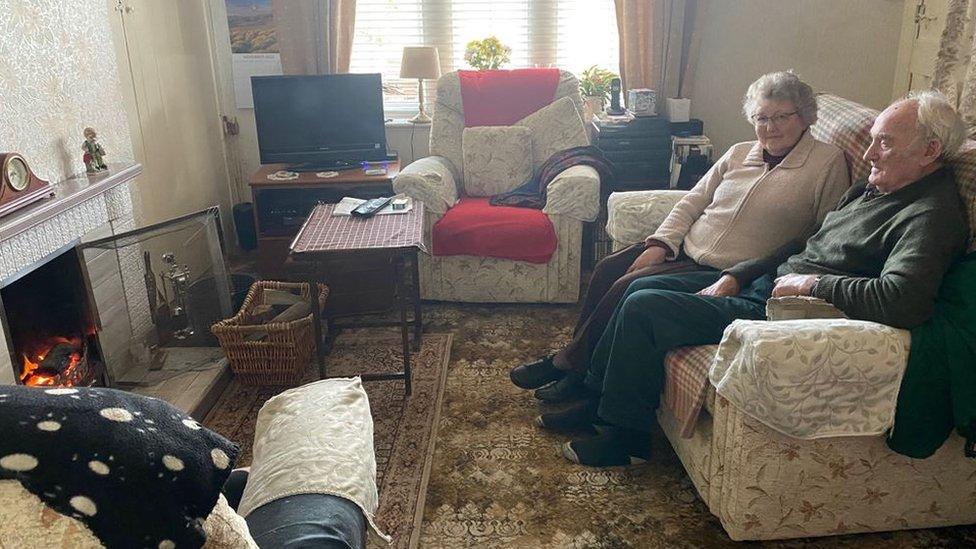
Many homes like this in Northumberland rely on solid fuels to heat their homes
People in rural areas are still living in dangerously cold homes because they are too afraid to put the heating on, a charity has claimed.
About 30% of Northumberland homes, external do not have mains gas and instead rely on heating fuels such as oil or LPG.
Community Action Northumberland (CAN) wants the return of a £200 government fuel payment for such households.
The government said it spent an unprecedented £40bn last winter supporting households and businesses.
In 2023, homeowners using alternative fuels such as heating oil, LPG or biomass - the prices of which are unregulated and can fluctuate daily - got an alternative fuel payment (AFP) government grant to help tackle rising bills.
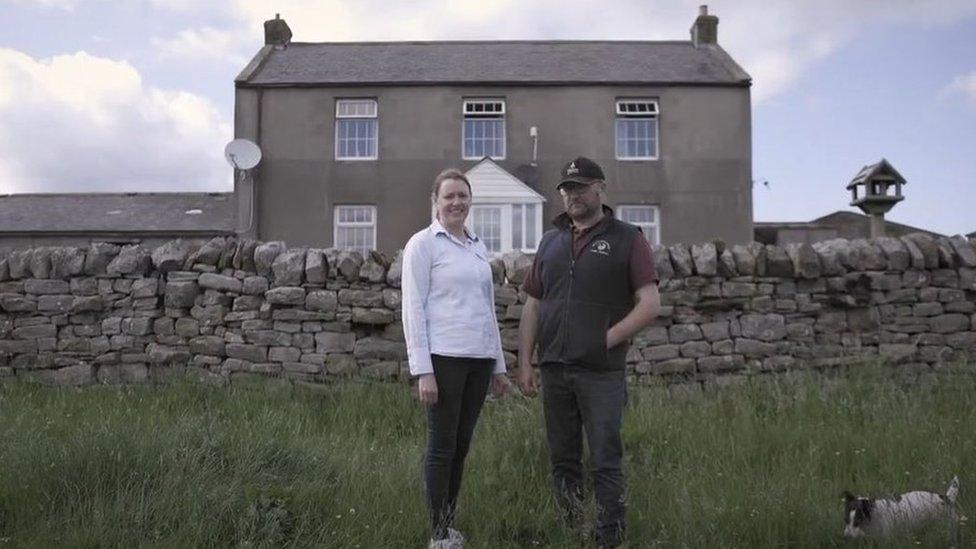
Sarah and Neil Robson pay more than £4,000 a year for energy on their remote farm
Sarah and Neil Robson, who live on a remote farm near Hexham with neither mains gas or electricity, have a wind turbine but mostly rely on a diesel generator.
"It costs us around £4,000 a year for the diesel, but then servicing and maintenance costs on the generator are on top of that," Mrs Robson said.
"The AFP was definitely useful because off-grid energy is so expensive."
Christine Nicholls, energy lead for CAN, said: "There's a huge inequality for people living in rural areas.
"Not only are they disadvantaged by transport and a lack of facilities, but heating has become a terrible issue for those living off the gas grid because gas is the cheapest form of energy.
"They're cutting back on essentials like not having boilers checked, not having chimneys swept, really putting themselves at risk of carbon monoxide poisoning.
"We hear of people living in one room, blocking up vents and disconnecting their electricity because they can't afford the bills."
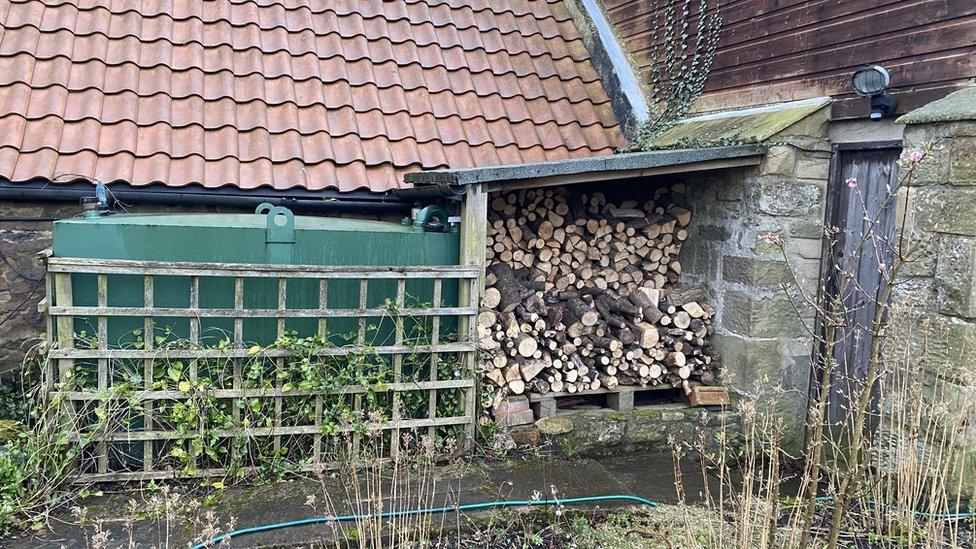
About 30% in Northumberland relies on solid fuels like oil or wood
Andrew Beresford, one of six energy advisers employed by CAN, said: "Many people can't afford to put their heating on, and some who can afford to are too afraid.
"It's really important people ask for help and advice, because there is help out there.
"Nobody should be going cold in this day and age."
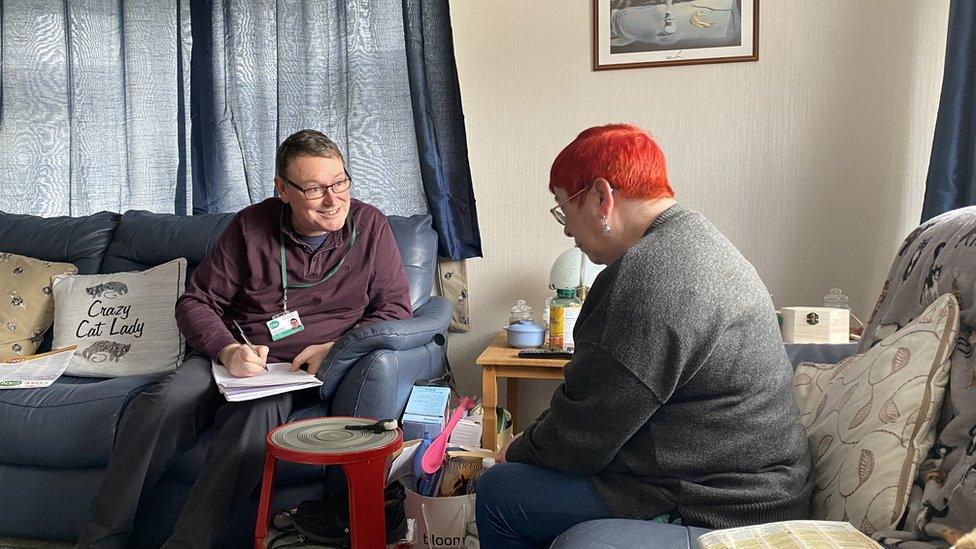
The charity provides home visits to help people with their energy needs
Christine Batt, 79, a CAN client who lives in a residential park in Wooler, said her bills were "terrible", adding: "It is a worry.
"I've got a bit of savings but I don't want to use them, because at the moment I'm fine but if it went up any more, I'd try and stay warm but it would be difficult."
The NHS has said keeping warm over the winter months can help to prevent colds, external, flu and more serious health problems such as heart attacks, strokes, pneumonia and depression.
It recommends heating bedrooms and living rooms to at least 18C.
A Department for Energy Security and Net Zero spokesperson said: "Alternative Fuel payments were a one-off measure after energy prices spiked to unprecedented levels following Russia's illegal war in Ukraine.
"Since then, we've halved inflation and energy prices are now significantly less than half their peak, including the cost of most alternative fuels, such as heating oil.
"We're spending an average of £3,700 per household to help with the cost-of-living, alongside direct targeted support for those who need it, including the £150 Warm Home Discount."

Follow BBC North East on Facebook, external, X (formerly Twitter), , externaland Instagram, external. Send your story ideas to northeastandcumbria@bbc.co.uk, external.
Related topics
- Published23 February 2024

- Published24 February 2023
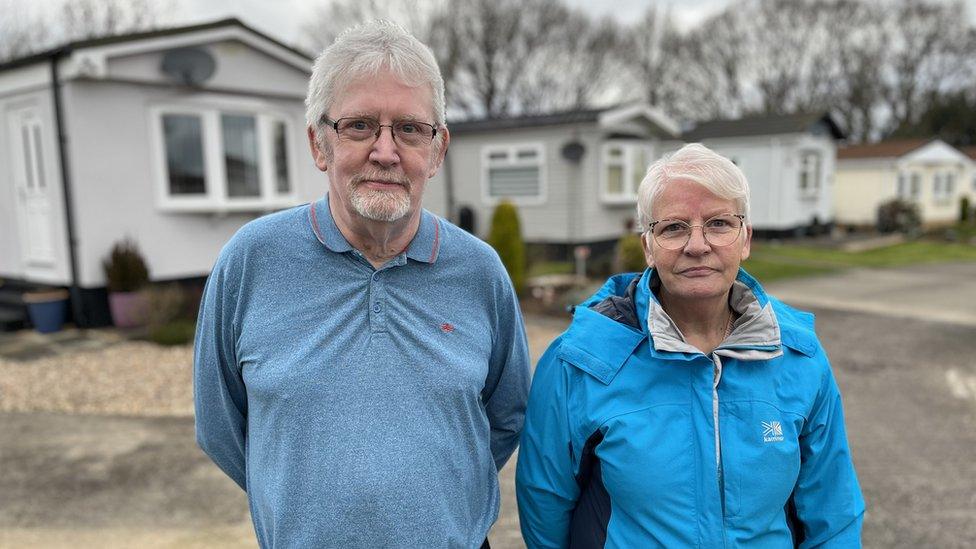
- Published15 October 2023
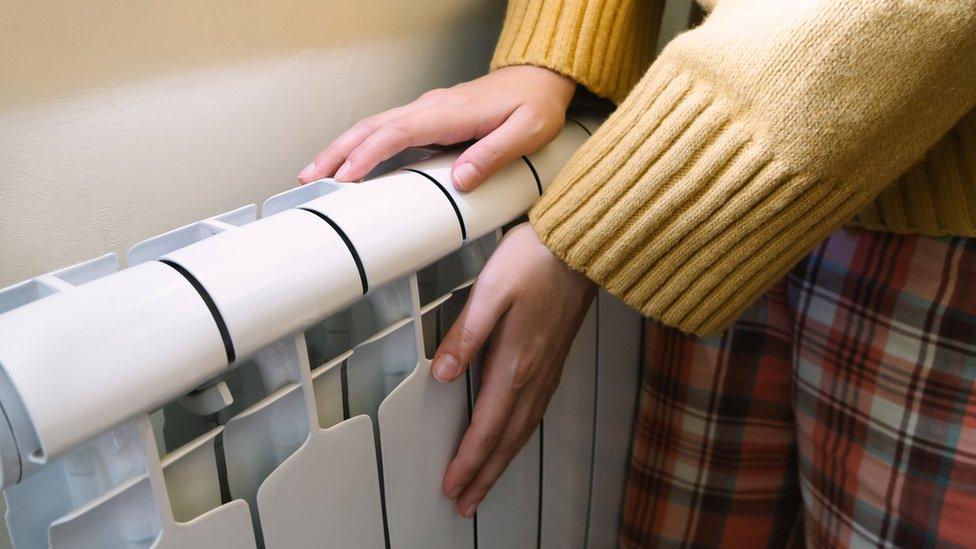
- Published5 February 2022
